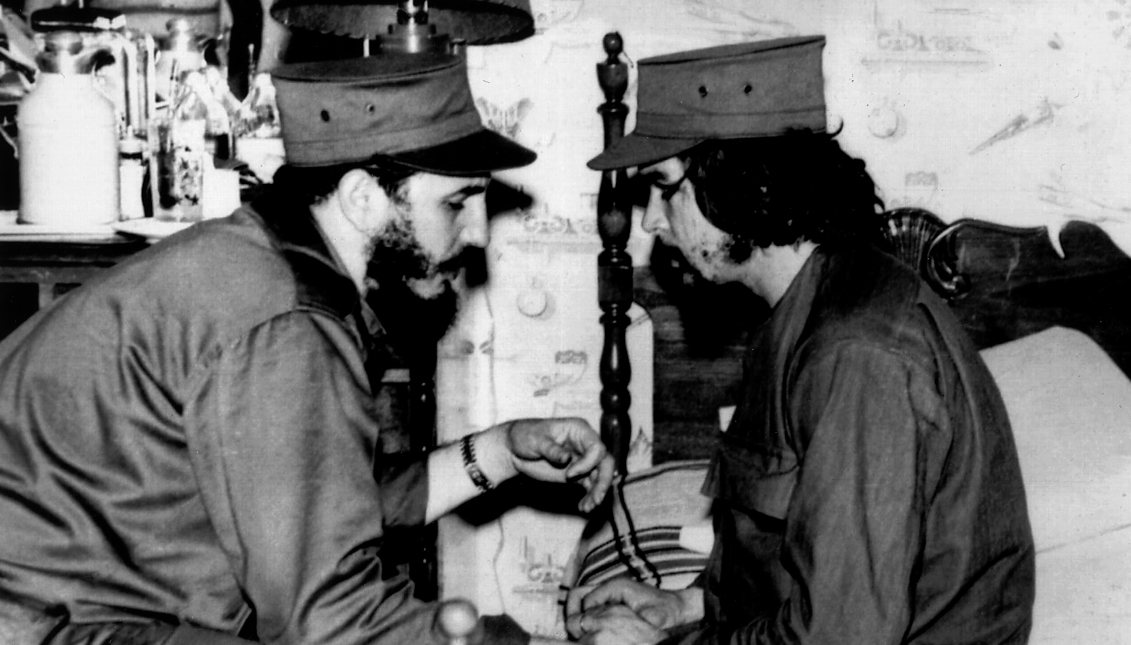
[OP-ED]: "12 uncertain hours that changed my life forever..."
I arrived in Miami in 1961 after a perilous journey in a little boat, living proof that revolutions –the Cuban one had triumphed in January 1959—can be confusing and chaotic whirlwinds capable of removing the floor from under your feet before you understand what is taking place.
I lived in beautiful Varadero Beach and I never wanted to leave my country. My parents were proud Cubans who raised me and my younger brothers and sisters to love our island and honor its history.
I arrived in Miami in 1961 after a perilous journey in a little boat, living proof that revolutions –the Cuban one had triumphed in January 1959—can be confusing and chaotic whirlwinds capable of removing the floor from under your feet before you understand what is taking place.
I lived in beautiful Varadero Beach and I never wanted to leave my country. My parents were proud Cubans who raised me and my younger brothers and sisters to love our island and honor its history.
Like most Cubans I was elated by Fidel Castro's victory. I hated Fulgencio Batista who, in March 1952, established a murderous dictatorship in Cuba with a coup d'etat. Him and his thuggish police assassinated 20,000 mostly young Cubans and mercilessly tortured and imprisoned hundreds of thousands more.
Yet, it didn't take much time for Castro's Socialist-leaning government to lose some of its popularity, especially with the rich –of which I wasn’t one--who feared losing their wealth.
After the U.S. failed Bay of Pigs invasion in April 1961, my father, a grocery store owner, was sent to prison for five years charged with helping someone flee the country illegally and "activities against the security of the state.”
That convinced my young mind of the unworthiness of the regime and turned me around. It was a visceral reaction that would have life-altering consequences.
On a moonless November night, I left Cuba with two friends in a small boat. One of my friends was 19 and the other was a 16-year-old who wanted to join his father in Chicago. I was 20.
A noisy 30-horsepower Johnson outboard, a toy compass, a flashlight made waterproof with a condom, a bag of oranges and five gallons of water, were to take us across the treacherous Straits of Florida. Somehow the 14-footer made it to the U.S. Marquesa Island off the Florida coast. As a sign with a big red bullseye warned, the island was a Navy shooting range, so we took off again toward an oil drilling platform in the distance. There incredulous workers alerted the Coast Guard who took us to Key West.
The trip from Cuba took 12 uncertain hours that changed my life forever.
During the next 18 years, I would finish college after being a busboy, librarian, college professor and journalist in Florida, New York and Puerto Rico.
In 1979 I joined a group of exiles in a trip to Cuba for a controversial dialog with Fidel Castro’s government. It resulted in the release of hundreds of political prisoners and the establishment of charter flights to Havana that carried thousands of Cubans living abroad to visit their families for the first time in decades.
Flying from Miami to Havana I was surprised at how calm I felt. Jesús Díaz, a writer and filmmaker who would later die in Spain, greeted me at the airport.
"How do you feel now that you are back after so many years?" he asked. I couldn't speak. I just started sobbing like a little kid. I was home.
By now, I have been back many times, as a journalist to cover Pope John Paul II’s visit in January 1998 and the return to the Island of Elián González, the little boy who became a cause célèbre, in June 2002, among other events. I have also gone back simply as a native son eager to fill his lungs with the sweet air of the homeland.
Fidel Castro, the historic leader of the Cuban Revolution who had such a profound impact on my life and the lives of all Cubans both on the island and abroad has died. But the wishes of the Cuban people for peace, independence, social justice and true reconciliation remain very much alive.









LEAVE A COMMENT: